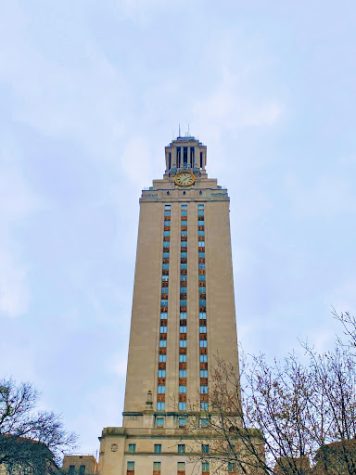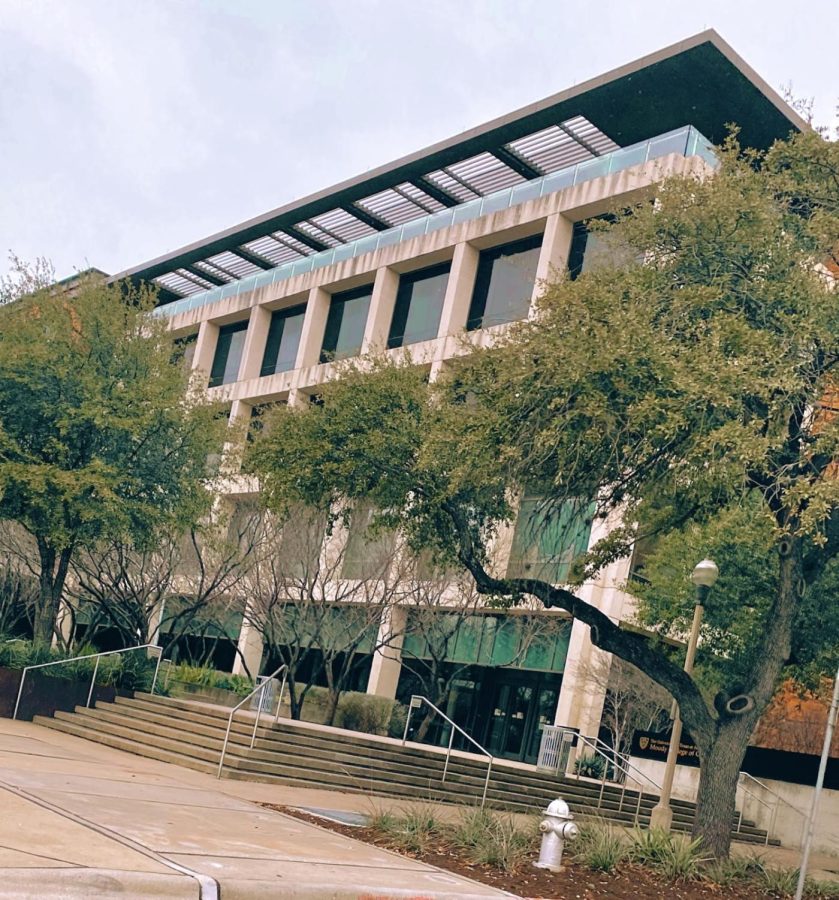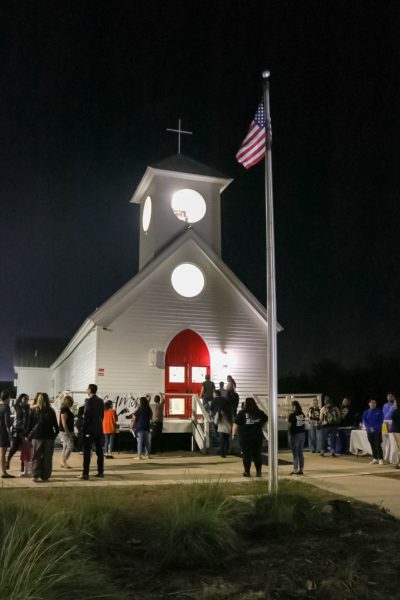CNN executive wants us to adjust to the times
The G.B. Dealey Center for New Media center at the Moody College of Communication located at 300 West Dean Keeton St. on UT campus. The presentation took place on floor five and in room 208.
What is increasing faster than the price of gasoline? Apparently, the pressure for global newscasting companies to keep up with the transformations of digital technology.
That’s what Andrew Morse, executive vice president and chief digital officer of Cable News Network (CNN) Worldwide, told journalism students at the University of Texas in Austin on March 10 during a seminar.
Journalism has advanced at warp speed, and the news must stay ahead of the trends. “Be careful what you wish for,” Morse said Thursday. “These times are anything but boring.”
The race to succumb to society’s advancements has emerged into a highly disputed and highly unprecedented future. It has redefined as one of the largest multinational news-based television stations in the world. CNN+ was born to meet the demands of global innovations in technology.
Amidst a global pandemic, a disastrous political cycle and a war in Europe, the choice to expand is ever more pending to Morse. This transformative progression requires empathy from him, but it also requires the ability to push people out of their comfort zones, which is even more crucial. He believes CNN+ will reach a larger demographic of people and do exactly that.
Morse stressed that he is a firm believer in not fearing change and emphasized one should never stand still in this remarkable catastrophe of events. Inevitable rites of passage have existed throughout the evolution of media advancements: Radio once dominated the media market, but television took over as the most popular media form in the 1950s.
If you are left behind, you will be unknown to the world you live in. This latest investment was a result of the ever-changing market, and we can only expect more television stations to produce their own form of subscription streaming services.
A company ahead of this curve is The New York Times, according to Morse. He described the newspaper publication as “a modern media company” with the nickname “the Netflix of news.” He claims the nickname originated on Wall Street and has made rounds in the business world.
The New York Times has done what CNN is attempting to do: metamorphosize its content into a more relevant medium. Morse asserted that he wants to challenge this method of thinking and produce an equal or more substantial medium like The New York Times.
Three economic reasons caused the switch aside from more exposure: consumer behavior change, market opportunities and acting at a time when CNN’s business has never been stronger. Morse suspects their audience will substantially change over the next three to five years.
He inferred popularity ultimately results in more revenue. He confessed that the company actually makes most of its money from subscription services. Current dissolving contracts with other streaming services have made this jump less nerve-racking.
Morse affirmed that while CNN is following suit to this digital trend, they intend on adding a few original elements to diversify their competition. They are adding eight to 12 original shows and documentaries, live streams with news experts and older binge-worthy content. If you have ever wanted to rewatch past historical moments while they were happening or interact with CNN staff, this feature will make it possible.
It is more important than ever to be caught up with your local and national news. “Be ready to fight the next war, not the last one,” Morse said. Reflection is required in order to understand our troubled past and grow from it, but the future of our nation is arguably the most important facet to acknowledge.
Morse argued that CNN+ is essential to the dynamic world we live in because it uses collaboration and the fostering of ideas. It sheds light on how we work and the way we work as people. In this mindset, he strongly advised everyone to step back and appreciate the chaos because we are making history.
After this presentation, Morse talked more about his career leading up to this moment and why he was so motivated to give this presentation. Morse claims journalism to be “the hardest work you’ve ever done [but the] most fulfilling.” He self-proclaims his work as his “craft” that bit him like a bug bite and has never gone away.
Morse has seen many travesties and historical moments firsthand as a travel reporter. Ever since he learned about reporting in his adolescent years, he knew this was the career path for him.
After graduating from Cornell University, he applied to over 200 broadcasting publications and only heard back from two. One publication was on strike, and one gave him a maybe. Even a man destined for fame with an impressive background at one of the prestigious schools in the country had to fight tooth and nail to make it in this industry.

After several years in the field, he was able to work his way up to an ABC desk job. It is evident that journalism is his passion and not just a job. His persistence and perseverance paid off.
This presentation attracted quite a large crowd. Mackenzie Coleman, a journalism major at the University of Texas, said she was “kind of intrigued by what this presentation would look like.” She admitted that she “wasn’t quite sure what the transformation of digital technology meant” prior to this presentation.
This presentation was an eye-opening experience that helped students analyze the evolving field of journalism. Hearing advice from someone of Morse’s caliber helped students understand the expectations and transformative narrative of today’s society.












